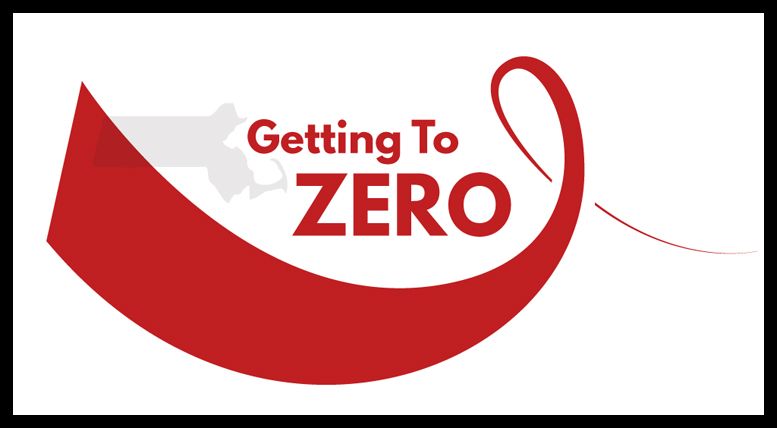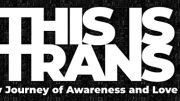BOSTON, Mass.―The Massachusetts Getting to Zero Coalition, led by the AIDS Action Committee, Fenway Health, and over 35 supporting organizations from the six health regions of the Commonwealth, today released a plan to end HIV/AIDS in Massachusetts. The plan seeks to ensure that by 2020, 90 percent of those living with HIV are aware of their status; 90 percent of those diagnosed with HIV are treated with antiretroviral therapy; and 90 percent of those receiving antiretroviral treatment are virally suppressed. It is modeled on the Getting to Zero new HIV infections plan created by the Joint United Nations Programme on HIV/AIDS which has been adopted by the state of New York and city of San Francisco. The plan will be launched on World AIDS Day, Thursday, December 1 at a reception at Harvard Medical School from 6 to 8 p.m.
In Massachusetts today, approximately 90 percent of those living with HIV (22,451 people) are already aware of their status, and 16,872 are being treated with antiretroviral therapy. To achieve the 90 percent treatment goal (20,206 people), an additional 3,334 people living with HIV would need to be engaged in healthcare. Approximately 72 percent (14,560 people) of those in treatment are virally suppressed; to reach the goal of 90 percent, an additional 3,625 people would need to achieve viral suppression.
“When the AIDS epidemic erupted more than 35 years ago, Massachusetts stood out as a national leader in its response to the epidemic. We realized early on that we needed to speak directly to those at high risk of contracting AIDS, and we had to do it in ways that were culturally appropriate,” said AIDS Action Executive Director Carl Sciortino. “As we seek to end AIDS in Massachusetts, we’re taking that same approach of going directly to those at highest risk of HIV infection to ensure they have the treatment they need to stay healthy. But we’re also going to employ sexual health training for healthcare providers and make big data available for prevention program designers to exploit every possible opportunity to end the spread of HIV.”
In 2016, the Massachusetts Getting To Zero Coalition held 10 community forums and 10 working group meetings in every region of the state. Discussions with healthcare providers, case managers, peer health navigators, people living with HIV/AIDS, people affected by HIV/AIDS, and members of local communities with high rates of HIV/AIDS yielded seven priorities to eliminate AIDS in Massachusetts:
- Identifying the remaining seven to 11 percent of those living with HIV in Massachusetts who have not been diagnosed
- Helping those who have been diagnosed with HIV adhere to treatment plans
- Prescribing pre-exposure phrophylaxis (PrEP) to those who are at high risk of contracting HIV; PrEP is an antiretroviral medication that if taken as prescribed is a safe and effective way to prevent HIV infection
- Strengthening treatment and prevention services for those in Massachusetts who remain disproportionately impacted by HIV/AIDS: people who inject drugs; people who are incarcerated or institutionalized; transgender people; Black and Latina women; and non-U.S. born individuals
- Improving health surveillance and data reporting systems
- Adoption of sexual health as a human right by public health officials
- Coordinate state efforts with national and international Getting to Zero initiatives
The coalition identified 40 activities to support these priorities, including:
- training healthcare providers to take stigma-free sexual histories that will elicit honest answers from patients
- advertise on social media and sexual networking apps to engage communities at high risk for HIV, particularly young Black and Latino men who have sex with men
- securely cross-reference patient data at clinical sites, laboratories, and the state’s HIV surveillance department to expand and finely tune data-driven patient follow-up strategies
- train healthcare providers on the use of PrEP for HIV prevention
- strengthen HIV/AIDS services within correctional and institutional settings
- create a digital dashboard with timely reporting of key indicators for the Massachusetts Getting to Zero plan
- pass legislation requiring all local school districts to provide comprehensive, age-appropriate, and medically accurate sexuality education
Over the next few months, the coalition will take feedback from community members on its plan, and create working groups that will plan concrete strategies to implement the seven identified priorities for ending HIV/AIDS in Massachusetts. It will then define the public indicators used to evaluate the Getting to Zero initiative in Massachusetts, and partner with other community groups whose work intersects with the key priorities and goals of the Getting to Zero initiative.
The Massachusetts Getting to Zero Coalition report, “Massachusetts Comprehensive Plan to Eliminate HIV Discrimination, AIDS Related Deaths, and New HIV Infections,” is available online at www.GettingToZeroMA.org.
AIDS Action Committee of Massachusetts is the state’s leading provider of prevention and wellness services for people living with and at risk of HIV/AIDS. AIDS Action works to stop the epidemic by eliminating new infections; maximizing healthier outcomes of those infected and at risk; and tackling the root causes of HIV/AIDS. Founded in 1983, AIDS Action is New England’s oldest and largest AIDS service organization, advocating for the needs of people living with HIV/AIDS by educating the public and health professionals about HIV prevention and care; and promoting fair and effective HIV/AIDS policy at the city, state, and federal levels. In 2013, AIDS Action Committee of Massachusetts entered into a strategic partnership with Fenway Health, allowing both organizations to improve delivery of care and services across the state and beyond.
Since 1971, Fenway Health has been working to make life healthier for the people in our neighborhood, the LGBT community, people living with HIV/AIDS and the broader population. The Fenway Institute at Fenway Health is an interdisciplinary center for research, training, education and policy development focusing on national and international health issues. Fenway’s Sidney Borum Jr. Health Center cares for youth and young adults ages 12 to 29 who may not feel comfortable going anywhere else, including those who are LGBT or just figuring things out; homeless; struggling with substance use; or living with HIV/AIDS. In 2013, AIDS Action Committee of Massachusetts joined the Fenway Health family, allowing both organizations to improve delivery of care and services across the state and beyond.
[From a News Release]







